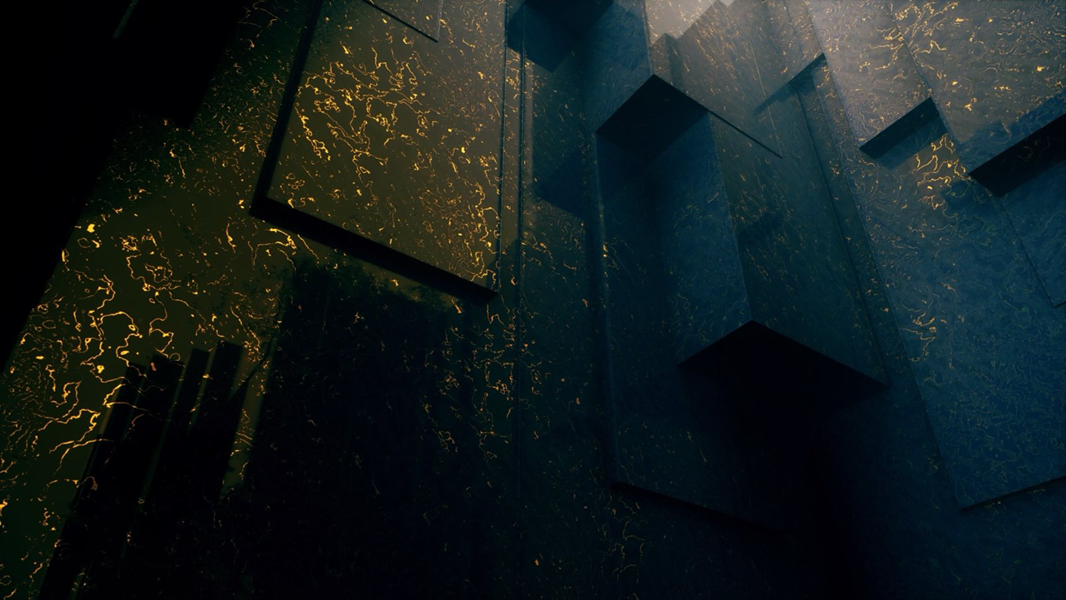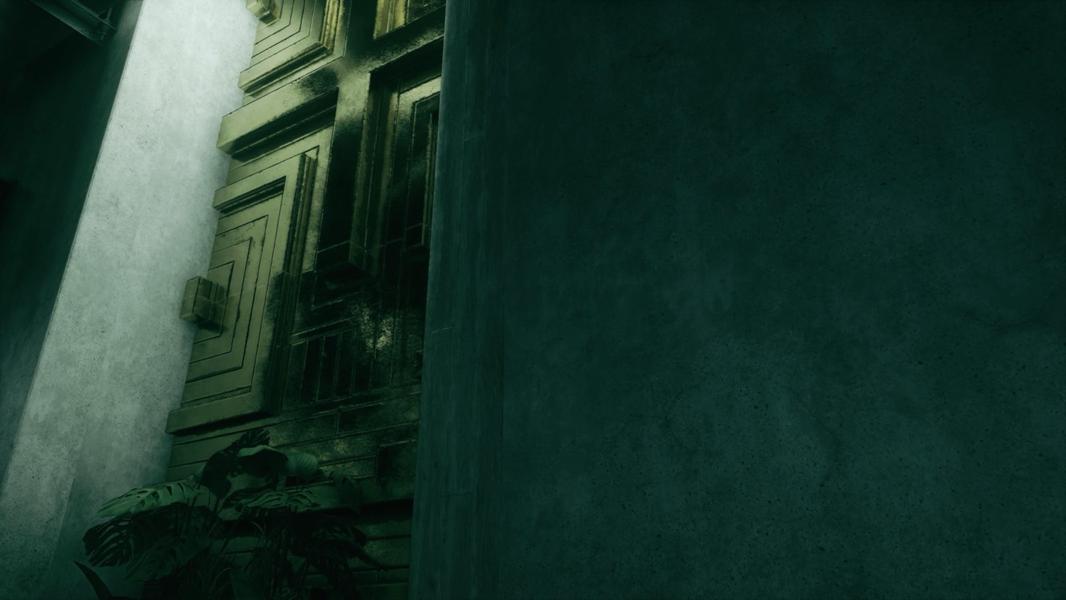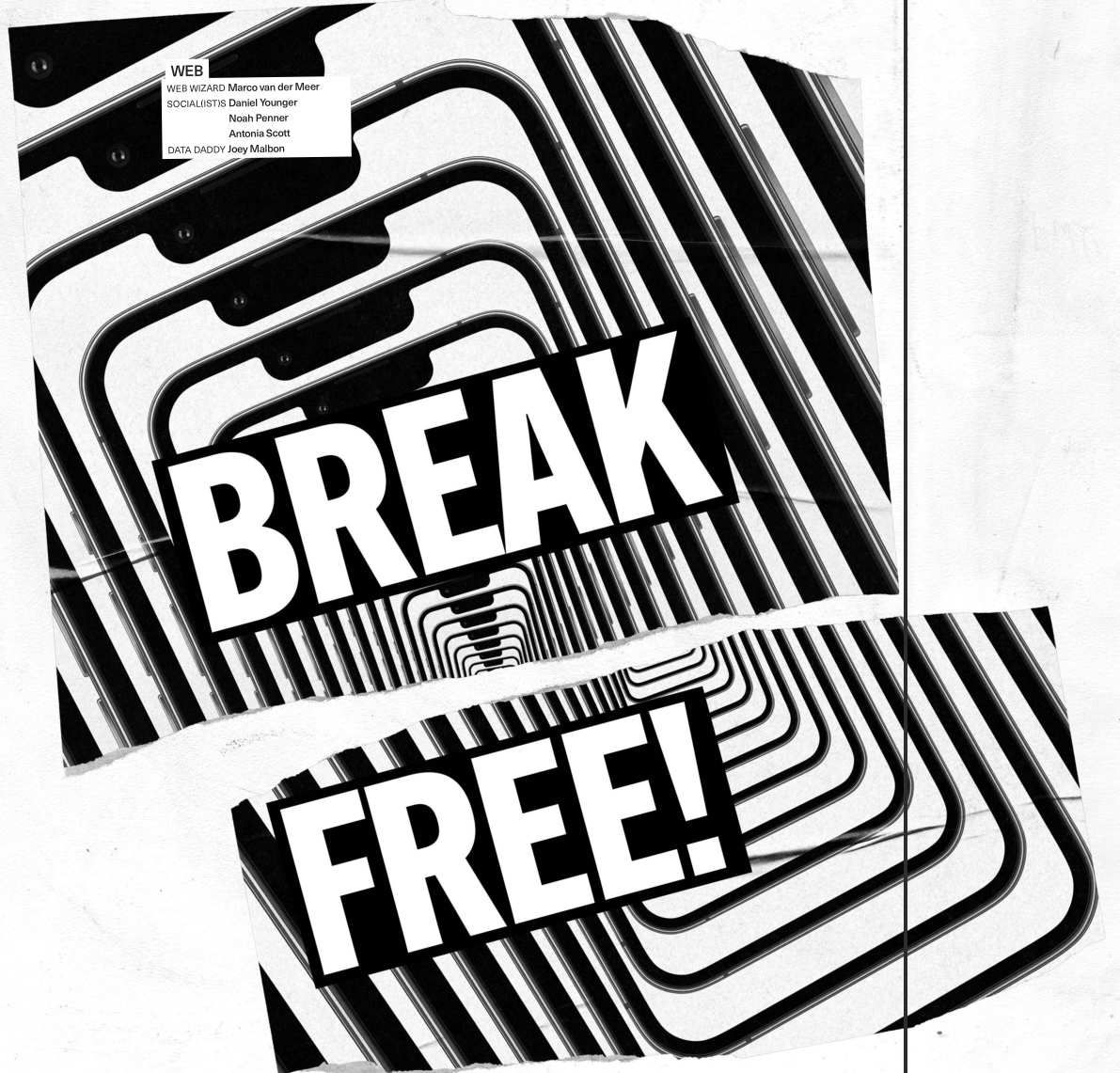Infinite Highway Into The Abyss
My existence is a blob of distractions and screentime that mimics a human life. In the throes of my digital coma, I've stirred enough to write this blog post.

I've had this post in my drafts for months and never got around to finishing it. The chorus of a million little nagging doubts have stayed my hand from clicking the "Publish" button. There's a simple idea I'm trying to get at here, namely how using the internet with even a modicum of conscious intention has ripped me out of a digital coma.
I got stuck writing this post toward the section where I wanted to talk about the book "Right to Oblivion". I began reading it to give my thoughts on privacy a bit more nuance and depth but it took my mind to places I wasn't expecting. It revealed a secret hatch that I had forgotten about deep in my mind, long forgotten and hidden under the piles of boring day-to-day tasks that fill my waking hours. It was a hatch that lead to weird, mysterious feelings and to a bizarre sense of hope; hope that things are not always what they seem, and that even I as old and ossified as I am, can still change.
I do not do the book justice and I probably just read the right book when my mind was already in a suspectable state, but it certainly is worth reading if you ask me.
Without further ado, to the post...
A few months ago, after considerable hand-wringing and worrying, I decided to move Mastodon servers and I'm now on CortexImplant, a cyberpunk-themed instance that is used by the kinds of people I admire and want to emulate.
It's a community that is fighting back against the corporate engagement model that drives the design choices that shape modern social media. After readjusting my social media use and funneling my phone time into visiting this Mastodon instance, I began to experience a sensation I don't think I've had since childhood; I'd be scrolling through a feed, get to the end of it and then just close the app and continue with my day. I know this sounds like the peak of mundanity but these seemingly insignificant events of reaching the end of a feed and not having it scroll on and on like an infinite highway into the Abyss was a bit shocking at first. Despite seeing myself as a person who has quite a bit of self-control in regards to my phone use, making sure to never pull it out mid-conversation or during other social events, I'd been entrapped by the very feed algorithms I loathe and find dangerous to the fabric of society.
The human mind should not spend endless hours scrolling away on feeds or attempt to cram every idle moment with numbing distractions. Getting bored is an opportunity to snap out of the daze you're in and find something new to do. It's a shame that technology has been geared toward making these fragile windows of opportunity rarer and rarer. After all, every minute not spent by a screen is a moment that can't be monetized.
After some time, I realized I don't have this mental "Emergency Stop" button I can press whenever I'm bored anymore, I'm forced to engage with things I'd otherwise ignore. This is not a new insight, I mean there have been countless mindfulness books that have been blaring out these kinds of observations for decades, but it's something I think everyone needs to experience on their own, on their own terms, to truly understand and appreciate.
In my youth I spent a fair amount of time meditating and trying to calm myself and understand why I wanted the things I wanted. I'd dare to even say I got a few pieces of the answers to some of those ineffable mysteries of existence and they have had a definite positive effect on how I live my life. I'm mentioning this only to highlight that despite these psychic experiences I've had and having been so mindful regarding what I pay attention to, I also feel prey to the addictiveness of social media feeds. Knowing that social media is habit-forming and promotes division is not enough to break the spell they cast; you need to actually step back and disengage with them entirely. It takes a lot to be honest with yourself in this regard, at least for me the excuses and explanations seeped all too easily into my mind that lead me to this situation in the first place.
No longer bound by some algorithmic feed, I'm finding myself in the open wilderness outside of the internet, or should I say the bizarre open space that is just living a dull, mundane life. This sense of openness is really does feel like a physical one to me, in that staring at a screen on the metro or while waiting for someone feels like being in a mental cocoon in some way. It's a kind of tunnel vison that shallows my breathing and the rest of the world disappears from view. Now that I turned my gaze upward from my screen, lived experience is beginning to feel more "open", I see and notice a lot more now.

At heart I'm a pretty lazy person. I like to take naps and sort of just linger around a lot. It takes a whole lot to get me to do something other than these two aforementioned things, so usually action on my part requires some new interest I begin obsessing over. I usually get to some point with a new fixation, only to drop it after a while. The introduction of the smart phone hasn't helped with keeping my mind focused either. Most people I think can relate to this kind of cycle. It pains me to be able to see this pattern play out over and over again in my life, feeling helpless to prevent it.
I began keeping this blog in the hopes it would sharpen my thinking and keep me on track with the projects that I'd hope give my life some general sense of purpose, however posts are months apart and every one feels like a chore. Even writing this post has take me over a week, something that would require most people a simple afternoon. I don't mean to open up and complain here, I just want to give anyone reading this a sense of what my regular state of mind is in regards to focus and intention because it's important to what come next.
Sometime toward the end of last year, when reflections on the life already lived are weighing on many people's minds, I picked up two books somewhat accidently that really made me think about how I've been living my life until now. The first one I'm going to cover is "How to Do Nothing: Resisting the Attention Economy" by Jenny Odell. The book came to my attention by being recommended to me by some algorithm that had noticed I was reading a lot of books on privacy, and I picked it up pretty much due to this one standout quote I saw from it:
What does it mean to construct digital worlds while the actual world is crumbling before our eyes?
I began reading it and it is full of these beautiful and thoughtful turns of phrase that had me stop and re-evaluate these basic assumptions I didn't really want to acknowledge having. I think everyone has portions of their psyche, be it bad memories or personality traits or emotional triggers, that they can't look at head-on. You can know they're there, but they're too painful or embarrassing to fully pull up and handle in your conscious mind. For me at least, I can notice these shadowy elements indirectly, as if in the peripherals of my "mind's eye", and it takes some outside influence to force my attention towards these sources of mental pain.
The one shadow elements of my psyche this book forced me to confront it the complete disconnect between my mind and my body. As I mentioned on Mastodon when I originally read this book, I feel like I'm like a "brain in a vat", a mind that is trapped inside an aching meat-cage and only really activates when reading something online or playing a video game. This is of course somewhat exaggerated, but I can't shake this feeling that I'm only really doing something that matters when I'm behind a keyboard.
Jenny Odell's whole book is about shaking off these kinds of feelings and realize that a model of being online has developed that is not very healthy, not for our bodies but also not for our minds. She goes on to explore the financial and social motivations for this development, but what I really took away from this book is the method she prescribes as a remedy: to simply not be as online. It's a course of action that is so simple but requires a whole book to expand on it, something Odell herself realizes with some irony in her introduction to the book. It's something I took to heart. I won't go about outlining her arguments here, I take that if this is an line of thinking you're interested in you'll pick up the book yourself. The book was able to implant the seed of this idea in my mind that I needed to further unplug myself, that there is something more beyond what I'm currently experiencing through a screen:
"As the body disappears, so does our ability to empathize. [quoting Franco Berardi] ..."hypothesize the connection between the expansion of the infosphere.. and the crumbling of the sensory membrane that allows human beings to understand that which cannot be verbalized, that which cannot be reduced to codified signs""
Over the course of the years I spent meditating, I began to see how my own mind has portions I can't look into, that I can't experience directly, but from the mists of these mental areas comes the impulses that later become my actions. It may be some offshoot from one of these seeds the book had planted in this mysterious section of my mind that saw me start exercising again, something I hadn't done in something like 10 years. Re-realizing that I indeed had a body was painful at first, I have to admit, but slowly getting physically stronger has filled me with some kind of hope. I now have new goals to strive toward while simultaneously having a deeply grounding routine.
It was hard to dig out and confront the idea from my mind that was the deep untruth of the Cartesian body-mind dichotomy, as I really would just keep on seeing myself as an disembodied brain making my way through the world in a flesh mech-suit.
The second book that I read and what I want to end this blog post on is called "The Right to Oblivion: Privacy and the Good Life" by Lowry Pressly. The book had what I felt was the lofty aim of trying to describe a theory of privacy that made it more than a social good, and instead an essential element of being a fully realized human being. I read the introduction of the book from the sample chapter just to see if this attempt warranted further reading, and I was impressed enough to get the book and dive into this theory further. I was not disappointed.
I'm not going to go too in-depth here. The book has a rhythm to it as it slowly goes about setting up a grand philosophical explanation for why "privacy", a value mostly appreciated for its social aspect, is vital to personal well-being. Pressly makes the argument that a person cannot really be themselves without the ability to be completely alone, or "unaccountable", and they need to know for certain that they are actually alone and free from any piercing gaze. The book's glowing heart slowly comes into view toward the end of chapter two but really becomes dazingly blinding in the following chapters.
Fundamentally, Pressly points into a mystery at the heart of every person, this kind of personal ocean that lies underneath our upkept public persona which is so deep and wide that it can never be completely known. In almost mystical terms he describes how every person at points in their lives are able to witness the ebbs and flows of this tremendous "inchoate" world and it is through these fleeting moments we can understand we are not just the narrative that runs in our minds, but something far more.
Here are a few quotes I really liked from the book from chapter 2:
There is yet another way that being unaccountable contributes to well-being, which relates to the sense of the unaccountable that is perhaps closest to oblivion: that which is obscure to scrutiny, resistant to rational explanation, mysterious, or ineffable. The unaccountable in this sense is that which resists the exhaustive explanation that we aspire to when we speak of accounting for some phenomenon or action. Although as agents we need to be accountable for ourselves, that capacity is imperfect. The limits of self-knowledge, self-control, and self-determination mean that we can never fully account for ourselves.
Acquaintance with these unstructured, inchoate regions of the self offers a powerful resource for self-determination and the sense that one’s life has depth and the capacity for change.
Poetry and music gesture in the direction of these ineffable zones of human experience; tragedy gives them moral character. That such unaccountable elements of the self exist is an empirical claim, but we can make it normative and turn it toward privacy by adding the thought that this zone of experience and self-relation is unaccountable not because it is hidden or secret, but rather because something is lost in the attempt to put it on display or translate it into information.
There is no reason to think that this is an easy or everyday experience. Taylor himself recognizes that “the obstacles in the way of going deeper are legion.”24 Among such obstacles is the condition of publicity.

It would be the common convention to end a blog post with some reflection and synthesis of the ideas I've been babbling about for the past 2000+ words. I think I was able to get out what I wanted to get out. I was able to somewhat describe how a couple interesting books affected me - but mostly I wanted to write out and reflect on my "popping out" experience that I've had when I turned my back on major social media sites. In retrospect it really seems so deeply insidious how addictive the virtual world is. I'd hate to be a kid growing up in this era.
On a deeper level, I just want to begin exploring this mystical shimmer I've been experiencing, sort of like I'm seeing the "Grand Illusion" for what it is. It's not that I feel anger for being tricked or deceived by smartphones and consumerism, but rather excited to see what I've been missing. I think I'm only going to be able to deeply explore this by writing blog post about it. Not a week goes by where I don't find myself amid the mundane chores that make up a human life and daydream of typing words right here.